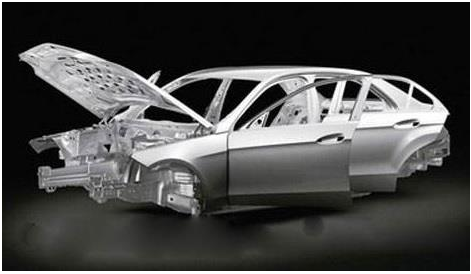Die casting is a widely used manufacturing process that involves the production of intricate and complex metal parts. It is a versatile technique that offers numerous advantages, making it a popular choice in various industries. This article aims to delve into the world of die casting products and explore its applications, benefits, and the different types of die casting processes.
Die Casting Process:
Die casting is a metal casting process that involves forcing molten metal under high pressure into a mold cavity. The mold, also known as a die, is usually made of steel and consists of two halves. Once the molten metal is injected into the die, it rapidly solidifies and takes the shape of the mold. After the solidification process, the two halves of the mold are separated, and the newly formed metal part, known as the casting, is removed.
Applications:
Die casting finds its application in a wide range of industries, including automotive, aerospace, electronics, and consumer goods. In the automotive industry, die casting is used to produce engine blocks, transmission cases, and various other components. In the aerospace industry, it is utilized for manufacturing parts like turbine blades and structural components. The electronics industry benefits from die casting by producing computer and smartphone casings. Furthermore, die casting is used in the production of household items like kitchen utensils and decorative pieces.
Advantages:
There are several advantages associated with die casting, making it a preferred choice over other manufacturing processes. Firstly, die casting allows for the production of complex shapes with high precision and accuracy. The molds used in die casting can be designed to create intricate details, ensuring the production of parts with tight tolerances. Secondly, die casting offers excellent dimensional stability, resulting in consistent and uniform parts. Additionally, die casting yields high production rates, making it a cost-effective manufacturing method. The process also enables the production of lightweight parts with excellent strength and durability.
Types of Die Casting Processes:
Hot Chamber Die Casting:
Hot chamber die casting is suited for metals with low melting points, such as zinc and magnesium. In this process, the molten metal is kept in a furnace connected to the die. A plunger injects the metal into the mold cavity, ensuring a continuous supply of molten metal. The advantage of this process is its high production rate and reduced cycle time.
Cold Chamber Die Casting:
Cold chamber die casting is suitable for metals with high melting points, such as aluminum and copper. Unlike the hot chamber process, the molten metal is poured into the cold chamber before being injected into the mold cavity. This process allows for the production of parts with superior strength and surface finish.
Vacuum Die Casting:
Vacuum die casting is employed when high-quality parts are required. The process involves removing air and gases from the die cavity before injecting the molten metal. This ensures the production of parts with minimal porosity and excellent surface finish.
Conclusion:
Die casting is a highly versatile manufacturing process that has revolutionized the production of complex metal parts. Its numerous advantages, such as high precision, dimensional stability, and cost-effectiveness, have made it an indispensable technique in various industries. By exploring the world of die casting products, we gain a deeper understanding of the process and its significance in modern manufacturing.
-

- Componentes de tixomoldeo de magnesio de alta precisión cubierta de la carcasa del portátil A
-

- Magnesium alloy bike parts & componenets for kid’s push bike
-

- Marco de pantalla LED de fundición a presión de aleación de magnesio
-

- Cuadro de bicicleta de montaña de magnesio
-

- 2022 Wholesale Hot Sale Bicycle Parts Magnesium Alloy Children Bike No Pedal Balance Bicycle Kids Multiple Colors Available
-

- Piezas y componentes fundidos a presión OEM

 0086-750-5616188
0086-750-5616188 +86 13392089688
+86 13392089688 sales@zhongmei-tech.com
sales@zhongmei-tech.com









